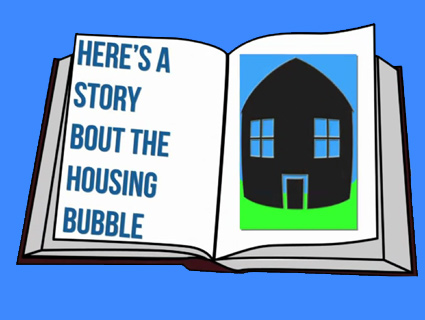
<a href="http://www.flickr.com/photos/imagemd/2095705200/sizes/m/">ImageMD</a>/Flickr
On Thursday, the Consumer Financial Protection Bureau, the federal consumer watchdog set up by the Dodd-Frank financial reform bill, announced a new set of foreclosure-prevention rules focused on keeping loan servicers honest.
Servicers, which collect mortgage payments from borrowers and work out terms of a loan, are supposed to explore all alternatives to foreclosure before reclaiming a home, and to give homeowners a fair and clear evaluation process. But as millions of borrowers fell behind on payments in the wake of the financial meltdown, loan servicers got slammed by tons of added legwork and administration, and many more got perverse incentives to fast-track borrowers into default. Some servicers put on a spectacular show of incompetence and outright fraud, routinely losing paperwork, “robo-signing” people into wrongful foreclosures, and locking people out of their houses when the borrowers thought they were on road to loan modification. Much of this is still happening. The new CFPB rules are supposed to help fix it. (A similar set of regulations targeting mortgage lenders was released last week.)
“For many borrowers, dealing with mortgage servicers has meant unwelcome surprises and constantly getting the runaround. In too many cases, it has led to unnecessary foreclosures,” CFPB Director Richard Cordray said in prepared remarks. “Our rules ensure fair treatment for all borrowers and establish strong protections for those struggling to save their homes.”
The regulations, which take effect in a year, mean a servicer is no longer allowed to “dual-track” borrowers, helping a borrower avoid foreclosure while at the same time moving to complete that foreclosure. As soon as a borrower becomes delinquent, the loan servicing company has to contact her immediately and offer all possible alternatives to foreclosure, like loan modification, to help her stay in her home. Companies will also be accountable for providing live customer service, i.e. human beings who pick up the phone who can answer borrowers’ questions about their accounts.
The CFPB rules also deal with the messy paperwork side of the foreclosure-processing fiasco. Servicers have to provide clear, decipherable monthly statements to homeowners that clearly show due dates, interest rates, and fees. They have to maintain accurate mortgage records, respond to complaints of paperwork errors quick-style, and tell borrowers if their application has not been received or is incomplete.
The agency will impose civil penalties for servicers who don’t comply. “People were trapped in a broken system, with deeply tragic consequences,” Cordray said.
It’s unclear whether the CFPB can fix that system by itself. Since its inception, the agency has been under fire from congressional Republicans who say it’s overstepping its authority on mortgage regulations, as well as consumer advocates who criticize its moves as “baby steps.” House GOPers, led by Darrell Issa (R-Calif.) and Patrick McHenry (R-N.C.), vowed last month to water down the Bureau’s powers and “partisan agenda.”
“At a time of prolonged economic strain,” the congressmen wrote, “American consumers can ill-afford such an unaccountable, unresponsive, and all-powerful financial regulator.”
















